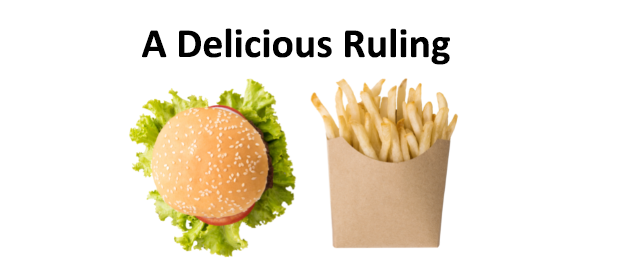Franchise 101: Transfer DQ’d; and Caught Between a Rock and a Renewal

Franchisor 101: Transfer DQ’d
A federal court in Wisconsin ruled that Dairy Queen did not breach a 1952 franchise agreement with a franchisee by requiring a prospective buyer of the franchise to sign an updated franchise agreement.
Dairy Queen and a franchisee operated under a two-page franchise agreement signed 70 years ago. The franchisee notified Dairy Queen of his intent to sell the franchise. The franchisee objected to Dairy Queen’s condition that it would only approve a transfer if the new owner agreed to sign an updated franchise agreement.
Dairy Queen brought suit for a declaratory judgment that it may condition approval of a sale of the franchise on buyer signing Dairy Queen’s then-current form franchise agreement. The franchisee brought counterclaims for breach of contract, breach of the implied covenant of good faith and fair dealing, and violation of the Wisconsin Fair Dealership Law (WFDL). Both parties filed motions for summary judgment.
The franchisee’s breach of contract claim failed because the franchise agreement specifically allowed Dairy Queen to condition approval of a transfer on a new owner signing a current franchise agreement. The court also rejected franchisee’s waiver argument that because Dairy Queen approved an unqualified assignment of the franchise agreement in the past, the current assignment must be permitted without conditions. The court noted that even if the parties’ past course of business were relevant, it would not support finding that Dairy Queen breached the contract.
Dairy Queen submitted undisputed evidence of legitimate business reasons to modernize its franchise agreements, negating franchisee’s counterclaim for breach of implied duty of good faith and fair dealing. The franchisee failed to explain why revisions in the new franchise agreement rendered Dairy Queen’s actions arbitrary or unreasonable.
The court held that Dairy Queen did not violate the WFDL because the requirements in the new franchise agreement were not a “substantial change” to competitive circumstances and Dairy Queen clearly established good cause for the need to update its franchise agreement.
Franchisors typically require buyers purchasing an existing franchise to execute the franchisor’s then-current form of franchise agreement, which may be significantly different than the franchise agreement the selling franchisee signed. Often times the franchisor’s current form of franchise agreement impose higher fees and operating requirements because times change and the system evolves. Franchisors should review their franchise agreements on an annual basis with counsel to determine which provisions should be updated to reflect current market conditions.
Am. Dairy Queen v. Wineinger, 2022 U.S. Dist. LEXIS 135908 (W.D. Wis. Aug. 1, 2022)

Franchisee 101: Caught Between a Rock and Renewal
A federal court denied a franchisee’s motion for a temporary restraining order and preliminary injunction in a dispute over renewal of a franchise agreement to provide home care services with HCAF.
The franchise agreement contained a post-termination covenant not to compete. At the end of the initial term, the franchisee exercised its conditional right to renew the agreement. HCAF did not have a then-current standard form of the renewal franchise agreement available, so HCAF provided the franchisee with a demand agreement which included a compulsory sale provision, or purchase right, granting HCAF the discretionary authority to purchase the franchisee’s business at any time. The franchisee refused to sign the demand agreement. HCAF informed the franchisee that the demand agreement must be executed by the franchisee and returned within thirty days; otherwise, the franchise would expire. HCAF and the franchisee entered into nine separate extensions of the existing franchise agreement as they attempted informal resolution.
The franchisee sued HCAF and filed a motion for a temporary restraining order or preliminary injunction to preserve the status quo. The franchisee contended it was stuck in a Catch-22: if the franchisee allowed the franchise agreement to expire, HCAF will invoke the post-term covenant not to compete. Alternatively, if the franchisee signed the demand agreement, HCAF will invoke the purchase right provision.
The court denied the motion. The court held that the franchisee was unlikely to succeed on the merits because the franchisee had not shown likelihood of success on the claim that HCAF had breached the franchise agreement in its renewal conduct. Nothing in the initial franchise agreement prohibited the terms offered by HCAF. The initial franchise agreement provided that renewal was contingent upon the franchisee signing a new agreement that may contain different terms than the initial agreement. Likewise, the franchisee had not shown it was likely to succeed on its claim for declaratory judgment that the covenant not to compete was invalid.
Franchisors often require franchisees to sign new franchise agreements when exercising a renewal option. Franchisees should consult with counsel to review renewal conditions in their current franchise agreements to determine what steps must be taken to continue operations at or after expiration of the agreement’s term.
Terrier, LLC v. HCAFranchise Corp., 2022 WL 4280251 (D. Nev. Sept. 15, 2022)